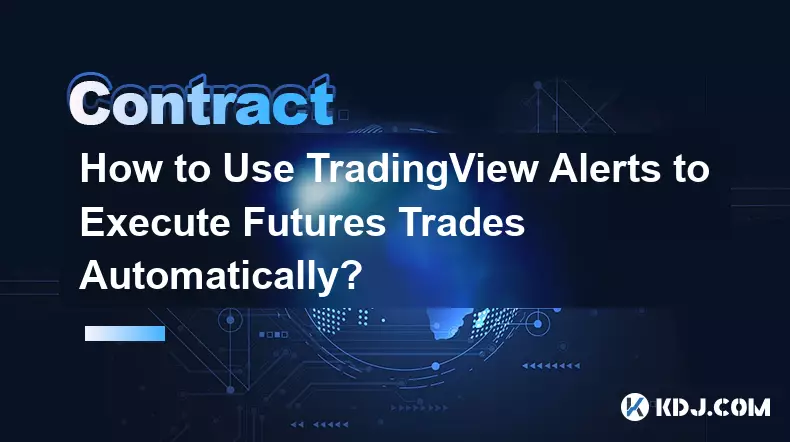-
 bitcoin
bitcoin $87959.907984 USD
1.34% -
 ethereum
ethereum $2920.497338 USD
3.04% -
 tether
tether $0.999775 USD
0.00% -
 xrp
xrp $2.237324 USD
8.12% -
 bnb
bnb $860.243768 USD
0.90% -
 solana
solana $138.089498 USD
5.43% -
 usd-coin
usd-coin $0.999807 USD
0.01% -
 tron
tron $0.272801 USD
-1.53% -
 dogecoin
dogecoin $0.150904 USD
2.96% -
 cardano
cardano $0.421635 USD
1.97% -
 hyperliquid
hyperliquid $32.152445 USD
2.23% -
 bitcoin-cash
bitcoin-cash $533.301069 USD
-1.94% -
 chainlink
chainlink $12.953417 USD
2.68% -
 unus-sed-leo
unus-sed-leo $9.535951 USD
0.73% -
 zcash
zcash $521.483386 USD
-2.87%
Can US citizens trade on Bybit or Binance futures?
U.S. citizens face legal restrictions on trading crypto futures via platforms like Bybit and Binance, but regulated alternatives such as Coinbase NFA and Kraken offer compliant options.
Jul 23, 2025 at 12:42 pm

Understanding the Legal Status of US Citizens on Global Exchanges
For US citizens, trading on global cryptocurrency exchanges like Bybit and Binance comes with legal and regulatory complexities. Both platforms have historically restricted access to certain services for US-based users due to compliance with U.S. regulatory frameworks, particularly those enforced by the Commodity Futures Trading Commission (CFTC) and the Securities and Exchange Commission (SEC).
The core issue lies in the classification of cryptocurrency derivatives, such as futures contracts, which fall under the jurisdiction of the CFTC. Exchanges offering these products to U.S. residents without proper licensing can face legal repercussions. As of the latest available information, Bybit does not allow U.S. citizens to trade on its platform, including futures. Similarly, Binance has taken steps to restrict access to its futures market for users within the United States.
Important:
Users attempting to bypass these restrictions using Virtual Private Networks (VPNs) or other location-masking tools may violate the platform’s terms of service and face account suspension or legal action.
Available Alternatives for U.S. Traders
Although Bybit and Binance restrict futures trading for U.S. citizens, several domestic and regulated exchanges offer similar services within legal boundaries. Platforms like Coinbase Exchange, Kraken, and Bybit’s U.S.-compliant sister platform Bybit U.S. allow trading of spot crypto assets and, in some cases, regulated futures contracts through affiliated entities.
For instance, Coinbase Exchange does not offer futures directly, but Coinbase NFA, a separate entity, provides regulated crypto futures trading under the oversight of the National Futures Association (NFA). This distinction is crucial for U.S. traders seeking compliance with federal laws.
Important:
Always verify the regulatory status of any exchange before depositing funds or engaging in futures trading to avoid legal complications.
Steps to Identify and Access Regulated Futures Platforms
If you're a U.S. citizen interested in trading cryptocurrency futures, follow these steps to ensure compliance:
- Research Regulatory Compliance: Check whether the exchange is registered with the CFTC or operates under a recognized regulatory body.
- Review Licensing Information: Look for official licensing details on the exchange’s website or through regulatory authority databases.
- Use KYC-Verified Accounts: Complete the Know Your Customer (KYC) process on U.S.-compliant platforms to gain access to permitted services.
- Check for U.S. Jurisdictional Restrictions: Confirm that the platform explicitly allows U.S. residents to trade futures contracts.
- Avoid Using Prohibited Access Methods: Do not attempt to bypass geographical restrictions using unauthorized tools or methods.
Important:
Engaging in futures trading without proper regulatory clearance can lead to frozen accounts, fines, or legal action.
Technical and Legal Considerations for Futures Trading
Futures contracts on cryptocurrency exchanges typically involve leveraged positions, which amplify both gains and losses. U.S. regulators have expressed concerns over the risk exposure of retail traders to such instruments. Consequently, platforms offering futures to U.S. clients must adhere to margin requirements, risk disclosures, and position limits set by regulatory bodies.
Additionally, tax implications of futures trading must be considered. The IRS treats cryptocurrency as property, and futures contracts may be classified under Section 1256 contracts, which have specific tax treatment including 60/40 tax splits on gains.
Important:
Always consult with a qualified tax professional or legal advisor before engaging in futures trading to understand your obligations and liabilities.
Platform-Specific Policies for U.S. Users
Both Bybit and Binance have clear policies regarding U.S. users:
- Bybit: Explicitly prohibits U.S. citizens from registering or trading on the platform. Any account found to belong to a U.S. resident may be terminated.
- Binance: Operates a separate entity, Binance U.S., which complies with U.S. regulations. However, Binance.com does not allow U.S. residents to trade futures or access certain high-risk products.
Important:
Attempting to use Binance.com or Bybit.com from a U.S. IP address may trigger account freezes or forced verification processes.
Frequently Asked Questions
Q: Can I use a non-U.S. friend’s account to trade futures on Bybit or Binance?A: No, this is a violation of both platform policies and U.S. law. Account sharing or proxy trading may result in legal consequences and account closure.
Q: Are there any offshore exchanges that allow U.S. citizens to trade futures legally?A: While some offshore platforms may permit U.S. access, doing so typically violates U.S. regulatory requirements. Trading on unregulated exchanges carries significant legal and financial risk.
Q: What happens if I already have an account on Bybit or Binance and am a U.S. citizen?A: You may be subject to account verification, restriction, or closure. If you reside in the U.S., it's advisable to migrate your assets to a compliant platform.
Q: Can I trade crypto options instead of futures in the U.S.?A: Some regulated platforms, like Deribit and LedgerX, offer crypto options trading to U.S. residents, but access may be limited to institutional or accredited investors.
Disclaimer:info@kdj.com
The information provided is not trading advice. kdj.com does not assume any responsibility for any investments made based on the information provided in this article. Cryptocurrencies are highly volatile and it is highly recommended that you invest with caution after thorough research!
If you believe that the content used on this website infringes your copyright, please contact us immediately (info@kdj.com) and we will delete it promptly.
- MARA Stock Surges as Bitcoin Traders Eye Key Levels Amidst Market Volatility
- 2026-02-05 04:25:01
- Ethereum's Wild Ride: Gas Fees, Mega Rally Dreams, and Vitalik's L2 Reality Check Hit the Big Apple
- 2026-02-05 04:20:01
- Trump Token, Digital Footprint, and $MAXI: A New Era of Personality-Driven Crypto and 'Gym Bro' Economics
- 2026-02-05 04:20:01
- Bitcoin's Bumpy Ride: Market Weakness Collides with Regulatory Optimism
- 2026-02-05 04:10:01
- Exaverse Roars into the Roguelike Scene: A Dinosaur Adventure Awaits!
- 2026-02-05 00:30:01
- SpaceX, Dogecoin, and the Moon Mission: A New Era of Crypto in Space
- 2026-02-05 04:05:02
Related knowledge

How to Manage Emotions and "Revenge Trading" in Futures?
Feb 05,2026 at 12:19am
Understanding Emotional Triggers in Futures Markets1. Market volatility directly impacts psychological states, often amplifying fear or euphoria based...

How to Use Volume Profile to Find Key Futures Entry Levels?
Feb 04,2026 at 11:39pm
Understanding Volume Profile Structure1. Volume Profile displays the distribution of traded volume at specific price levels over a defined time period...

How to Maximize Capital Efficiency Using Cross Margin Trading?
Feb 05,2026 at 12:40am
Cross Margin Trading Fundamentals1. Cross margin trading allows traders to use their entire account balance as collateral for open positions across mu...

How to Use Exponential Moving Averages (EMA) for Futures Trend Following?
Feb 05,2026 at 04:40am
Understanding EMA Mechanics in Futures Markets1. Exponential Moving Averages assign greater weight to recent price data, making them more responsive t...

How to Use TradingView Alerts to Execute Futures Trades Automatically?
Feb 04,2026 at 09:00pm
Setting Up TradingView Alerts for Futures Contracts1. Log into your TradingView account and open the chart of the desired futures instrument—such as B...

How to Use Automated Take-Profit Orders for Passive Gains?
Feb 05,2026 at 06:00am
Understanding Automated Take-Profit Mechanics1. Automated take-profit orders are preconfigured instructions that execute a sell trade when an asset re...

How to Manage Emotions and "Revenge Trading" in Futures?
Feb 05,2026 at 12:19am
Understanding Emotional Triggers in Futures Markets1. Market volatility directly impacts psychological states, often amplifying fear or euphoria based...

How to Use Volume Profile to Find Key Futures Entry Levels?
Feb 04,2026 at 11:39pm
Understanding Volume Profile Structure1. Volume Profile displays the distribution of traded volume at specific price levels over a defined time period...

How to Maximize Capital Efficiency Using Cross Margin Trading?
Feb 05,2026 at 12:40am
Cross Margin Trading Fundamentals1. Cross margin trading allows traders to use their entire account balance as collateral for open positions across mu...

How to Use Exponential Moving Averages (EMA) for Futures Trend Following?
Feb 05,2026 at 04:40am
Understanding EMA Mechanics in Futures Markets1. Exponential Moving Averages assign greater weight to recent price data, making them more responsive t...

How to Use TradingView Alerts to Execute Futures Trades Automatically?
Feb 04,2026 at 09:00pm
Setting Up TradingView Alerts for Futures Contracts1. Log into your TradingView account and open the chart of the desired futures instrument—such as B...

How to Use Automated Take-Profit Orders for Passive Gains?
Feb 05,2026 at 06:00am
Understanding Automated Take-Profit Mechanics1. Automated take-profit orders are preconfigured instructions that execute a sell trade when an asset re...
See all articles










































































